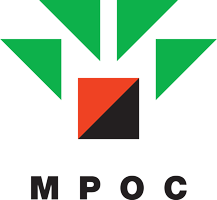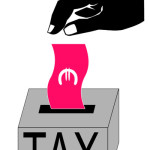Proposed French Palm Oil Tax is Discriminatory
 The Malaysian Palm Oil Council (MPOC) condemns efforts by the governing party of France, the Socialists, to impose a discriminatory tax on palm oil produced in the developing world. A new analysis commissioned by the MPOC finds no economic rationale for the new tax and, in fact, finds it to be disproportionate and discriminatory.
The Malaysian Palm Oil Council (MPOC) condemns efforts by the governing party of France, the Socialists, to impose a discriminatory tax on palm oil produced in the developing world. A new analysis commissioned by the MPOC finds no economic rationale for the new tax and, in fact, finds it to be disproportionate and discriminatory.
The French Parliament is currently debating a Biodiversity Bill. In the French National Assembly, Socialists MPs have now proposed a new 90 EUR per tonne tax on palm oil. This follows an attempt in January by the French Senate to place a 300 EUR tax on palm oil.
MPOC wishes to state clearly that any additional tax on palm oil in France has no economic rationale. To those who may claim that a 90 EUR tax is preferable to a 300 EUR tax, the answer is clear: there is no basis for any tax increase and neither proposal should be supported by the French Government. The economic analysis clearly shows any additional tax on palm oil to be discriminatory and unjust.
In a media statement, MPOC CEO Dr Yusof Basiron said: “The proposed tax is based on the flimsy ground that palm oil is under-taxed in France. This is false.
“The Assemblée Nationale has also proposed a ‘differential’ tax which would discriminate between different palm oil producers based on unspecified, unworkable and discriminatory views of sustainability. This action clearly undermines the national development goals of developing countries. The differential tax proposal is a clear violation of both WTO and EU rules.
“Malaysia is a good friend of France, and French Foreign Minister Jean-Marc Ayrault had promised the people of Malaysia that he would not tax palm oil. Mr Ayrault had promised the 300,000 small farmers in Malaysia that France would not harm them with a new tax. We expect this promise to be kept.
“MPOC asks the French Government to reject these discriminatory and unjust tax proposals, which will harm jobs, poverty alleviation efforts and economic growth in both France and Malaysia.”
Professor Pierre Garello of Université Aix-Marseille issued the following statement: “The economic analysis clearly shows that the premise for increasing taxes on palm oil is economically unsound. The claim that palm oil is ‘under-taxed’ in France is factually and materially wrong. Senators and MPs are using incorrect economic measurements to justify new taxes, which is misleading and makes for terrible laws.”
Facts on taxation
The economic analysis – conducted by Prof. Garello – shows the following facts about palm oil taxation in France:
- Palm oil is already over-taxed, compared to other vegetable oils.
- The current tax levels for vegetable oils are:
- Olive oil: 4.9%
- Rapeseed oil: 11.69%
- Sunflower oil: 15.79%
- Palm oil: 21.67%
- Soybean oil: 23.64%
- The additional tax on palm oil would raise discrimination to extraordinary levels. The levels proposed by the Senators are:
- Olive oil: 4.9%
- Rapeseed oil: 11.69%
- Sunflower oil: 15.79%
- Soybean oil: 23.64%
- Palm oil: 209.7%
The facts are clear. Claims by the Senators and MPs that palm oil is under-taxed are untrue. There is no economic justification for this proposed tax.
Key facts on Malaysian palm oil
Malaysia is the second-largest producer of palm oil, and a major exporter. The MPOC represents the interests of its palm oil growers and small farmers. About 40% of the plantations are owned or farmed by small farmers, who have benefited from oil palm cultivation.
Palm oil has been a major factor in Malaysia reducing poverty from 50% in the 1960s, to less than 5% today. The palm oil industry directly employs more than 570,000 people, with another 290,000 people employed downstream.
MPOC










Leave a Reply